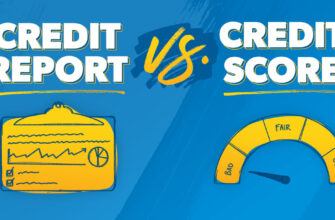- Navigating Student Loans: Essential Information for College Graduates
- Understand Your Loan Types
- Know Your Repayment Options
- Create a Budget
- Explore Loan Forgiveness Programs
- Consider Loan Consolidation or Refinancing
- Stay in Touch with Your Loan Servicer
- Prioritize Loan Repayment
- Seek Financial Aid Resources
Navigating Student Loans: Essential Information for College Graduates
Graduating from college is a significant milestone, marking the end of an era and the beginning of a new chapter in one’s life. However, for many graduates, the burden of student loans looms large, often overshadowing the excitement of entering the workforce. Navigating the complex world of student loans can be overwhelming, but with the right information and strategies, graduates can take control of their financial future. In this article, we will explore essential information that every college graduate should know about student loans.

Understand Your Loan Types
Student loans come in various forms, including federal loans, private loans, and consolidation loans. Federal loans are typically more flexible, offering income-driven repayment plans, loan forgiveness options, and lower interest rates. Private loans, on the other hand, are obtained from banks or other financial institutions and often have higher interest rates. It’s crucial to understand the terms, interest rates, and repayment options for each loan you have taken.
Know Your Repayment Options
Repayment of student loans usually begins after a grace period of six months. Federal loans provide different repayment plans, such as the standard repayment plan, income-based repayment plan, or extended repayment plan. These options allow borrowers to choose a plan that suits their financial situation. Private loans may have different repayment terms, so it’s important to contact the lender and explore available options.
Create a Budget
Creating a budget is essential for managing your finances effectively. Start by listing all your monthly income sources and expenses. Prioritize your loan payments and make sure they are accounted for in your budget. By tracking your expenses and making necessary adjustments, you can allocate funds towards your loans and prevent unnecessary financial stress.

Explore Loan Forgiveness Programs
Certain careers, such as public service or teaching, may qualify you for loan forgiveness programs. The Public Service Loan Forgiveness (PSLF) program, for example, forgives the remaining federal loan balance after making 120 qualifying payments while working full-time for a qualifying employer. Research available programs and see if you qualify for any loan forgiveness opportunities.
Consider Loan Consolidation or Refinancing
If you have multiple loans with different interest rates, consolidating or refinancing them may be beneficial. Loan consolidation combines multiple loans into a single loan, simplifying the repayment process. Refinancing, on the other hand, involves obtaining a new loan with better terms to pay off existing loans. Both options have pros and cons, so carefully evaluate your situation and consult a financial advisor if needed.
Stay in Touch with Your Loan Servicer
Your loan servicer is the company responsible for managing your student loans. Keep their contact information handy and stay in touch with them regularly. They can provide guidance on repayment options, deferment or forbearance if you face financial hardship, and answer any questions you may have.
Prioritize Loan Repayment
Student loans can have long-term implications on your financial well-being. Make it a priority to pay them off as soon as possible. Consider making extra payments when you can afford it, as this can significantly reduce the interest accrued over time. Every additional dollar you put towards your loans brings you closer to financial freedom.

Seek Financial Aid Resources
If you’re struggling to make loan payments, don’t hesitate to seek assistance from financial aid resources. Nonprofit organizations, credit counseling agencies, and student loan assistance programs can provide guidance and support. They may help you explore repayment options, negotiate with lenders, or find alternative solutions to manage your loans.
Navigating student loans may seem daunting, but by understanding your options and taking proactive steps, you can successfully manage your debt. Stay informed, create a financial plan, and explore available resources. Remember, your student loans are an investment in your education and future, and with careful planning, you can overcome this financial hurdle and thrive in your post-graduation journey.








